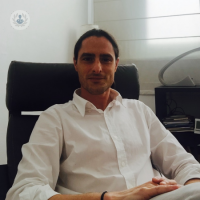Anxiety: real or imagined threat?
Written by:Anxiety is a response of the body to a threat. This threat can be real or imaginary. In addition to this, it may respond to a conscious or unconscious motive. That is, anxiety can have a real cause or an imaginary cause.
Symptoms of anxiety
Among the main symptoms of anxiety include:
- Restlessness or feeling of being trapped or with nerves on edge.
- Vegetative hyperactivity: dizziness, sweating, tachycardia or tachypnea, epigastric discomfort, vertigo, dry mouth, etc.)
- Difficulty concentrating or staying with a blank mind
- Irritability
- Muscle tension
- Sleep problems: difficulty falling asleep, difficulty to continue sleeping and, in addition, restless and unsatisfactory sleep
- Feeling "on the edge"
- Easily fatigued
Causes of anxiety
A real cause would be, for example, if a person walks down a dark alley and perceives two figures behind him approaching, he can feel his pulse quicken, the adrenaline rush through his body, feel fear and anxiety. This would be the case of a real and conscious threat.
As for the imaginary cause , it is one in which the cause is not detected. Many times it appears suddenly and does not seem linked to anything from the environment of the person affected. The symptoms of anxiety simply appear and the cause seems either disproportionate to the physiological reaction or the cause that is causing it is unknown.

When a person does not intuit the reason for the appearance of anxiety causes some added concern. In an attempt to look for motives, there are people who focus on the possibility that maybe something in their body is not working properly and a medical walk by all the specialists begins to try to find what is not working correctly (cardiologist, neurologist, pulmonologist, etc.). Normally this ends with the medical diagnosis: "you do not suffer from a heart problem, you suffer from anxiety".
A priori it would seem that these situations were going to be more serious. However, there are real and conscious situations that can cause anxiety and, therefore, require psychological attention.
Treatment for anxiety
Human behavior is complex and there are no unique and definitive solutions for all. Currently there is a tendency in Psychology to propose quick, easy and simple solutions for all. It is tiresome for professionals who have spent years working in mental health to see how people are confused in television programs and books written by "professionals" who prescribe "universal potions" or affirm phrases like: "... a patient came to me 15 years I had anxiety and in one session he was cured ... "
This is not true. The good, beautiful and cheap is a temptation but not a reality. If it were really that simple, anxiety would have stopped being a problem.
Anxiolytics are the medication most prescribed by doctors today to treat anxiety.
The key lies in making a good diagnosis. Starting from there and taking into account the personal characteristics of the patient, a personalized treatment must be designed for the patient that fits their reality, their needs and their capabilities.
Each person suffering from anxiety is a different case, since they are different causes and a unique life; so the question would rather be: how will there be a single valid treatment if all people are so different?
Many professionals tend to apply the same treatment to all patients who come to their office, so that patients are the ones who adapt to their method. Ideally, professionals should be able to offer each patient what they need.
Of course that is difficult because a professional can not know everything about psychotherapeutic techniques and models, but that's what teamwork is all about. The professionals have to surround themselves with other professionals.
What should a person suffering from anxiety do?
The most important thing you should do is:
- Do not be alarmed, since anxiety is treated and well treated, good results are obtained.
- Search a good professional. What professionals to avoid:
- Those that offer the service as something: easy, fast.
- Those who apply "THE METHOD", as the universal guarantee of treatment.


